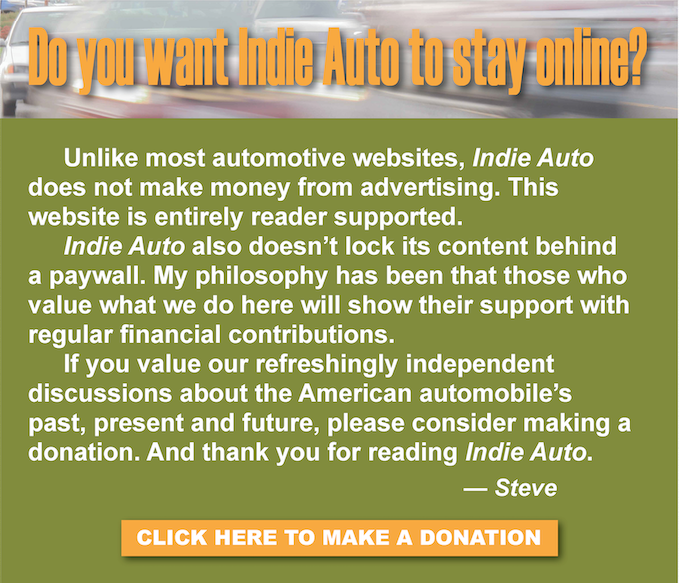
The editorial board of Automotive News sounds schizoid. Earlier this year an unsigned editorial argued that the “debate over the wisdom of converting the world’s automotive fleet from fossil fuels to electrical propulsion is now largely moot” (Automotive News, 2021a).
Also see ‘Automotive News stops dragging its knuckles on climate change’
Yet less than a month later another Automotive News (2021b) editorial declared that car dealers “aren’t wrong to be wary of EV hype.” After trotting out the usual list of hurdles, the editorial concluded by stating, “EVs are likely to be an important part of the American transportation landscape, but for most families, that reality will take years to evolve — and may take decades.”
Left unspoken was how the U.S. will meet its climate change policy obligations if this “go-slow” scenario were to play out as presented by Automotive News. Also unacknowledged was that the fast track of current carbon-reduction goals is the result of decades of foot dragging by the auto industry.
Latest editorial reads like a mea culpa to dealers
The two editorials sound like they were written by different people. And perhaps they were. Whereas the first editorial offers an admirable amount of nuance, the second one has the vague truisms common to the columns of long-time Editor-in-Chief Keith Crain.
I have no idea whether Crain himself weighed in. However, I would not be surprised if the first editorial elicited a big enough backlash from dealers that the second editorial was published as a mea culpa.
A strong reaction to the first editorial would be understandable given the high stakes involved for dealers. In addition, one would have to be an EV evangelist to not take seriously the significant hurdles to phasing out cars with internal-combustion engines.
All that said, this latest editorial is awfully reactive in its tone. The concluding paragraph reads: “When market forces make a viable business of EVs, dealers should embrace them. Until then, it’s wise to stay cautious.”
Is cautious reactivity the best business move?
Of course businesses should be judicious in navigating a murky future. But let’s also remember that the biggest breakthroughs in American automotive history occurred because entrepreneurs didn’t just wait for a market to shift — they helped to create it. For example, dealers who early on saw the potential of the Volkswagen Beetle arguably did a whole lot better than those who stayed cautious.
There’s a bigger issue here. EV naysayers tend to conveniently forget that the auto industry was founded on rapid change. As a case in point, the U.S. shifted from horses to automobiles in only one decade, according to Scientific American (Schlenoff, 2017).
In 1907 only 140,300 cars were registered in the United States. Ten years later there were almost 5 million cars. “Horses were now an imperiled minority on the roads; bicycles were in decline in the U.S., although still popular in Europe,” noted Daniel C. Schlenoff (2017).
The industry did it before — why not again?
Think about all of the infrastructure that needed to be created in order for the shift from horses to cars to occur — from gas stations and trained mechanics to new rules of the road. The hurdles were high enough that one could have easily argued in 1907 that a horse-based transportation system would continue to dominate the country for decades.
The current situation arguably requires a whole lot less change than the transition from horses. So if the fledgling auto industry managed to rise to the occasion a century ago, why can’t it do so now?
Also see ‘Elon Musk’s infamous interview: What the auto media missed’
The greatest value of the first editorial was that it encouraged a proactive approach to the future. Automotive News itemized a productive policy agenda that deserves follow-up discussion. Alas, this latest editorial hints that the knee may have jerked — and pulled Automotive News back to the last century.
As Peter DeLorenzo likes to say, this is notgood.com. Indeed, he recently offered a more forward-looking perspective about the “Grand Transition” to EVs (2021).
RE:SOURCES
- Automotive News; 2021a. “Time for U.S. to embrace the EV.” Unsigned editorial (subscription required). Posted Jan. 18; accessed Feb. 1.
- ——; 2021b. “Dealers aren’t wrong to be wary of EV hype.” Unsigned editorial (subscription required). Posted Feb. 8; accessed Feb. 24.
- DeLorenzo, Peter; 2021. “Doubt.” Auto Extremist. Posted Feb. 16; accessed Feb. 24.
- Schlenoff, Daniel C.; 2017. “The Motor Vehicle, 1917.” Scientific American. Posted Jan. 1; accessed Feb. 24, 2021.






Be the first to comment